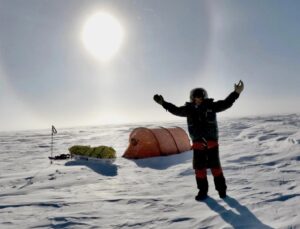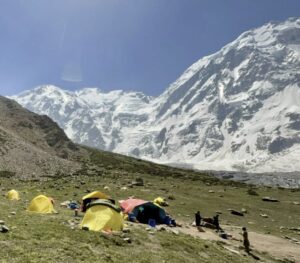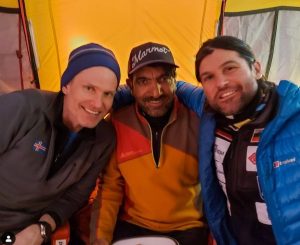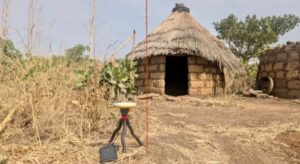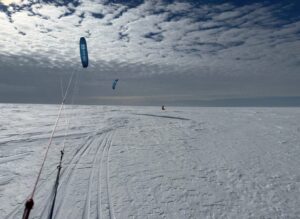Ryan Waters on what’s happening
Back from a C3 round on Everest, Mountain Professionals team are ready for summit push.
Some of the climbers are returning from the 2015 Earthquake season and the outfit includes US Chris Bombardier who will try to be the first person to climb Everest with Hemophilia.
Climbing with his clients and training mountaineering skills during ascents, veteran polar explorer and high altitude mountaineer Ryan Waters wants to give his members an experience that goes beyond the summit certificate.
We checked in with him to get the latest from Everest, and an update on recent events.
Pythom.com: Hi Ryan, first of all, what’s the take on Everest on the death of Ueli Steck? How do people feel about it considering the attack some years ago and do you have any details on what caused the fall?
Ryan Waters: We were very shocked and disappointed to hear the news about Ueli’s accident. My Sherpas told me about the incident as soon as we reached Camp 3 because some of their friends had either seen the fall or heard about it that morning just as we were leaving for C3 to acclimatize.
We waited until getting back down safely to C2 to tell our clients the news, just knowing it could be hard mentally to know that as they were rappelling the Lhotse face.
We don’t know more than the others, only that he fell from the route that you can see from C2 area, since some Sherpa saw the fall.
It is a tragedy to say the least. For me, I had a similar feeling as when Dean Potter died.
Both Dean and Ueli I had only met in passing, but both seemed like it could always happen, but never would or could, because they were special.
Pythom.com: How did it go with the tracking threat from the ministry? Are you forced to carry GPS?
Ryan Waters: It is something that has not even come up in our camp, I never heard anything more about the whole GPS tracking. Maybe it will be a slow roll out or something.
Pythom.com: How’s Chris doing with his blood clotting condition? Any interesting medical details you’ve found on altitude?
Ryan Waters: So far so good, the other day we performed what must be the highest ever infusion of Hemophilia Factor at camp 2.
Pretty cool, and Chris is taking very large doses to bring up his blood to what would be almost 90% normal compared to someone without the condition whenever we go up on the hill.
We were most worried about rock and ice fall on the Lhotse Face, since blunt trauma can cause bruising and lead to internal bleeding, but that is what the factor works against. So we are psyched so far!
Ed’s note/Wikipedia: Hemophilia is a medical condition in which the ability of the blood to clot is severely reduced, causing the sufferer to bleed severely from even a slight injury. The condition is typically caused by a hereditary lack of a coagulation factor, most often factor VIII.
Pythom.com: Some of your clients are quake survivors, how do they deal with memories of it now once back on Everest again?
Ryan Waters: When we first got here, people were a bit jumpy when there was a big avalanche near base camp because the remember that big sound of the Pumori collapse and avalanche that caused the destruction in 2015.
Now they are pretty much just normal, the group is motivated and ready for our summit push later this month.
Pythom.com: Messner had some comments on the future of Everest. Do you agree/disagree?
Ryan Waters: I read the article and I would agree with a lot of what he says, I have the utmost respect for his opinion and his accomplishments, but I don’t agree with all the things he and others think.
It is true that climbing Everest is now much easier, everyone knows that. With the infrastructure there it is open to a wide range of skills, but still some companies require their clients to have extensive background that would justify a “Guided” attempt on Everest.
I don’t agree with the view that Sherpas are the best alpine guides here. There are some that are very talented and many now that have certifications etc., and of course some are extremely knowledgeable about the Everest Route.
But a guide is many hats, aside from technical skill they need to be leaders, medics, part time counselors, technology experts, and know how to talk with foreigners. It is more than just technical guiding on Everest, and most the guides here from Europe or USA can take a group of clients to any location worldwide and successfully guide summits. There is valuable judgment and experience that comes from that.
I can only speak for my Sherpa team, yes they are very strong and knowledgeable and my Sirdar is one course from his UIAGM certification and my past Sirdar is a UIAGM guide, but it is our partnership that is a strong guiding team, western and sherpa.
Also I don’t agree that the western guides would not be out front fixing rope, we would all do it and historically did until the Sherpa demanded that it is their responsibility, look at the Ueli incident when the Sherpa got mad foreigners were out front on the route.
Pythom.com: How has the season been so far, any fun/interesting/unusual moments?
Ryan Waters: The season has been very mellow which is great! I always want to have “no drama” trips if possible, so we are doing our best to just focus on the climbing.
The rope fixing meetings have gone very well, nice and relaxed, it seems there are not many big personalities vying for control anymore, just some of the normal operations working directly with a team of about 14 rope fixing Sherpa from the 7 teams, and we just let them do what they do best and get it done. It’s very nice so far.
Pythom.com: What’s the deal with your yellow tents – how do they hold up to winds?
Ryan Waters: Yeah the yellow tents! One of my favorite additions this year. It is like having your own little personal sanctuary with a front porch that is enclosed for gear, clothing, etc. and inside the main area it is very cool, carpeted and lots of space and even to stand up in you own little place!
They are a little subject to wind, but we have had massive winds in basecamp this year and no problem! Just lots of good anchoring.
Previous:
Mount Everest 2017 Kickoff: Ryan Waters, “It will always be a special place”
GPS tracking on Everest: The community reacts
Ryan Waters BP: “We went about it a different way on this one”
ExWeb interview with Ryan Waters, “the North Pole is like going into battle”

